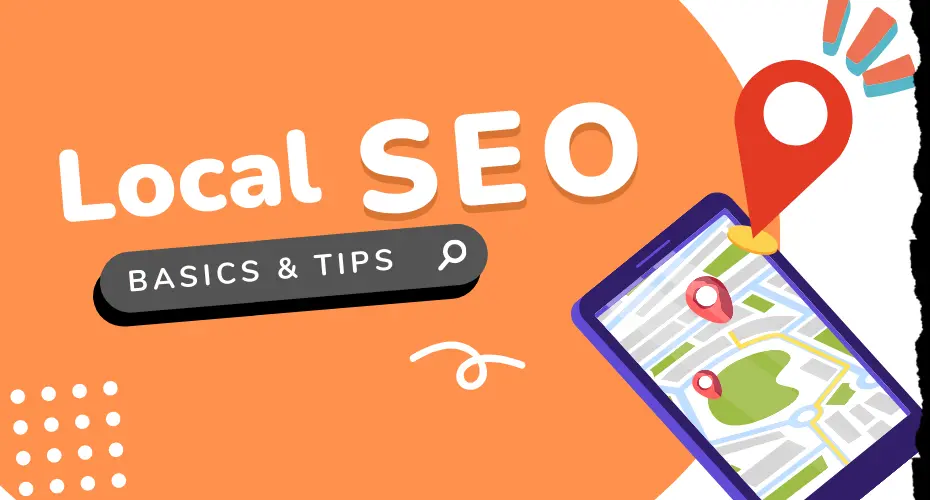Looking up contact and address data in the Yellow Pages is a thing of the past. Are we looking for local information, such as B. for a suitable restaurant for dinner or for a doctor nearby, we mostly use the search engine Google. The local search is becoming more and more important for regionally active companies, in particular due to the increasing proportion of search queries via mobile devices. In this article, as an experienced local SEO agency, we will show you how you can increase your local competitiveness with the right data and use local SEO to attract customers from the web to your business.
For whom is local SEO important and why?
Visibility in local search results is important for all businesses that have a physical point of contact (e.g. a brick and mortar store), offer their services at the customer’s location (e.g. a handyman or delivery service) and for online businesses that serve customers want to achieve in certain cities.
Every day, millions of people use Google’s local search to find businesses in their immediate area. Due to the steadily increasing number of mobile users, this development will continue in this direction. As early as 2015, Google, in cooperation with Ipos MediaCT, determined in a study that most consumers who make a local search query via a smartphone are about to make a purchase decision. The probability is therefore very high that consumers will become active through the regional hits found and visit the company or get in touch with its employees.
Experts refer to the phenomenon that consumers first obtain information about products and companies online and later become customers offline as the ROPO effect (“Research online, purchase offline”). Local retailers in particular can benefit from this trend through targeted ads or advertising. The prerequisite for this is a well thought-out online presence that depicts the products and services available at stationary locations and communicates contact and reservation options.
The most important ranking factors and application tips for local SEO
Findability in local search results essentially depends on the following three factors:
- Distance– Proximity of the searcher to the location
- Relevance– The relevance is higher the better the company matches the search intent. In order for the search algorithm to assess relevance, the company information must be complete and accurate.
- Reputation– a high reputation e.g. B. through backlinks from high-quality sources and customer reviews
We have summarized for you here what is important in detail and which factors play an important role in an effective local SEO strategy:
Position and Distance
The closer a company is to the user’s location, the greater the chance of being displayed as a search result . Companies with a central location often have better chances of being found. This factor is not that easy to optimize in Google search via local SEO unless you plan to move e.g. B. to the city center. A disadvantage in this context, however, is the existing local competition.
On-Page Factors
The basis for local SEO is your own website or landing page with the company and city name. The local reference is z. B. reinforced by local content in the form of photos, images or videos. The driving directions are also particularly relevant and should be clearly visible. As with classic SEO, optimizing the content plays a major role. Content must be relevant to the topic and match the user’s request as well as possible. They should also be unique and well structured so that they offer an advantage or added value to the visitor.
In order for the content to match the search intent of your users, extensive keyword research with a location reference should be carried out in advance . You can also use long-tail search terms, which represent a longer and more detailed search query.
NAP
The designation NAP stands for “Name”, “Address” and “Phone Number” . It is imperative that this company information appears the same way on all pages on the Internet and should comply with official spellings. Deviates z. For example, if the company name on your website differs from that on the Facebook page, this creates unnecessary confusion and distrust among potential visitors. As a result, one or the other contact attempt via local ads or advertising or via your website may not materialize.
Google My Business (GMB)
A company page on Google My Business is essential for being found in local searches . If Google recognizes a local reference in the search query, the algorithms access the stored Google My Business profiles. Corresponding hits are then displayed prominently above or next to the other organic results.
If you are listed on Google My Business, your business will also be visible on Google Maps and in local listings . In addition to the NAP information, you can also include other relevant information such as Store opening hours, local data, photos of the company building or a booking link. You can also implement regular announcements, news or press releases on Google My Business to improve your ranking so that your users can see at first glance when something important has changed.
First check whether your company is already listed, because Google has now automatically recorded many shops. You then go through all the requirements in the registration process and confirm ownership of your profile (usually by phone or postcard). When filling out the Google My Business entry, you should pay particular attention to ensuring that it is up-to-date and complete .

Mobile Optimization
Almost everyone uses their smartphone with mobile internet on the go, which means that information can be accessed from anywhere and at any time. Make sure that the content of your company website is also displayed correctly and in a user-friendly way in the mobile view so that potential customers are not frustrated and refrain from further interaction or even contacting or making a purchase. To test whether your website is mobile-optimized and whether there are any weaknesses in the mobile user experience, you can use Google’s Mobile Optimization Test tool.
Also, keep in mind that there are several ways to optimize the mobile site:
- With responsive design, the content adapts flexibly to the screen size and properties of the calling device. Responsive design thus makes optimal use of the available space for the display. This form of automatic adjustment offers many advantages and will continue to gain in importance in the future, the greater the diversification of Internet-enabled devices on the market.
- A separate mobile version of a website that can be reached via a subdomain or subfolder (e.g. m.domain.de or domain.de/mobil/). The disadvantage is that it exists in addition to the main domain and therefore the content has to be regularly updated, checked and optimized if necessary. This method is no longer up-to-date and unsuitable for (local) SEO.
- Accelerated Mobile Pages (AMP) is an open-source project by Google that aims to improve the mobile usability of websites, primarily by ensuring faster loading speeds. AMP pages score with an enormous performance advantage. The websites are no longer played out by their own web server, but by Google servers. Optimization with AMP is considered the most complex variant, but offers the great advantage of a very high page speed, especially for websites with a lot of static content. AMP pages enjoy a better ranking due to their loading speed and set themselves apart from the competition.
Local Citations – business directories
The importance of typical business directories is no longer as high as it was a few years ago. However, local and relevant listings are a sign to Google that your business exists and the specified location is active. Which directories make sense for you depends on the competition and the industry. Make sure that these are not web catalogs or automatically aggregated data directories. Telephone directories such as the Yellow Pages, directories of the respective city (e.g. meinestadt.de), Tripadvisor or other subject-specific and local business and company directories are suitable.
Structured Data
The term “structured data” refers to the identification of elements such as text, images or links using special HTML tags and attributes in the source code . This labeling is possible with many content management systems (e.g. WordPress). If information such as opening hours, location and the option to reserve a seat are marked with structured data, it will be easier for Google to display the relevant data of your business.
Schema.org is a joint project by Google, Bing and Yahoo for formatting Structured Data. You can use this to mark up and maintain your data at HTML level. Google has published a guide on how structured data works and what guidelines there are .
Reviews
Customer ratings are not only a plus for the search engine. More and more internet users rely on the opinions and experiences of other customers. The quality of the evaluation and the presence of keywords play a role in the rankings. According to a study by BrightLocal, 86% of consumers read reviews for local businesses. If the ratings are positive, most visitors also call up the homepage.
You should always respond to reviews, both positive and negative, whenever possible. This shows the users that they are being taken care of and that their concerns are being taken care of. Friendly and critical communication with constructive solutions is often reflected in increased sales or visitor numbers and has a positive effect on the evaluation of your company page and/or your Google My Business entry. In order to be considered with an average number of stars in the search results, you need at least 6 ratings.
Backlinks and local links
In addition to optimizing the My Business profile, entries in relevant directories and customer ratings, backlinks and general company naming also play an important role in local search engine optimization. If other well-known websites refer to your website via a link, this is taken as a recommendation . This increases your reputation in the “eyes” of search engines. But be careful here: The quality of the websites from which the link comes is extremely important.
Links from partner companies, suppliers, customers, local newspapers, regional trade magazines or local institutions are effective and of high quality.
Conclusion: Why Local SEO pays off for you too
Local search engine optimization (local or local SEO) offers clear added value, especially for regionally active companies. You get the opportunity to position yourself locally and reach users “on the go”. There is a good chance that these users will also become your customers. Local SEO is a long-term process that you should continuously drive forward. As a professional agency, we will be happy to help you develop a well-founded strategy for local search engine optimization so that you too can soon be found in the local search results.









Nice post. I learn something totally new and challenging on websites
Thank you! I’m glad you found the post informative and engaging. If you have any questions or need further clarification, feel free to ask!